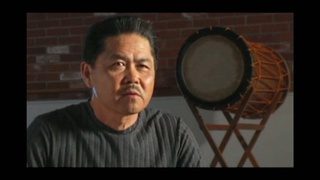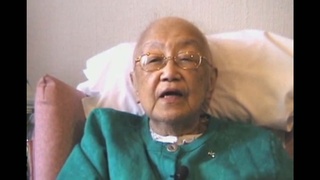Interviews
Longing for a life abroad and getting a chef’s license (Japanese)
(Japanese) When I was in college, I was working part-time mostly in the food business, like at a bento store. In order to get a chef's license I needed to get approval from the head of the store there and he gave me his signature. With that, I passed the test and got my license. So I had it with me. I got my license simply because I thought I could get on a cargo ship or a cargo-passenger ship for free and cross the ocean, with my license. But that didn’t happen and when I got here, before I started working as a gardener, when I went to Japan Town, I found that there were only two or three Japanese restaurants. And when I told them I had a chef’s license, they freaked out, and they didn’t want to hire me for that reason. They were like, we don’t want someone with skills that high.
Date: August 4, 2015
Location: California, US
Interviewer: Mitsue Watanabe
Contributed by: Watase Media Arts Center, Japanese American National Museum













